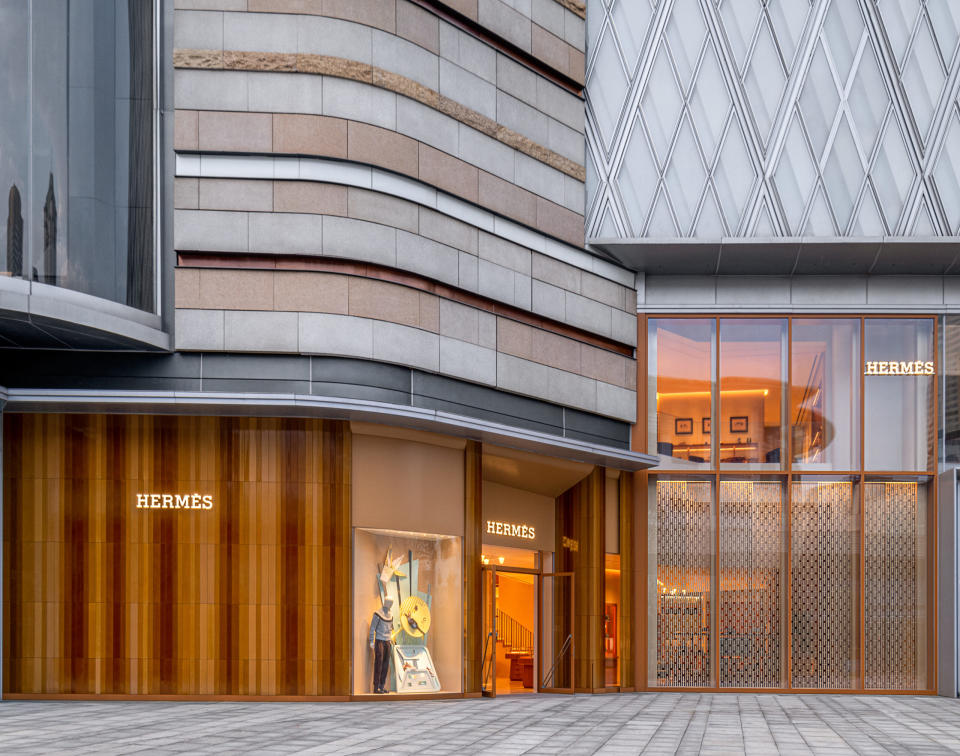Shanghai’s Plaza 66 H1 Tenant Sales Drop 38 Percent Due to Lockdown

LONDON — Hang Lung Properties’ Shanghai flagship retail complex Plaza 66 saw revenue and tenant sales decrease by 17 percent and 38 percent, respectively, in the first half of 2022, as the city of 26 million people was put under one of the strictest lockdowns worldwide in April and May meant to contain the spread of the COVID-19 Omicron variant.
Home to some of the biggest luxury flagships in China, Plaza 66 is considered one of the most important luxury shopping destinations in China, alongside SKP in Beijing, Deji Plaza in Nanjing and Sino-Ocean Taikoo Li in Chengdu.
More from WWD
Grand Gateway 66, the developer’s other key commercial property in the Xujiahui area, logged a 2 percent decline in revenue, and a 32 percent drop in tenant sales in the same period, while the city’s total consumer spending from January to May dropped more than 18 percent year-over-year.
The Hong Kong-listed developer said business at the Plaza 66 mall has recorded “a healthy recovery” since reopening on June 1.
“Following the government’s introduction of a series of support measures to a wide spectrum of business segments and the general community in early June, market sentiment has been picking up gently. More compelling marketing and promotion initiatives will be rolled out to accelerate the recovery,” the company added.

Courtesy
The tenant upgrade at Grand Gateway 66 in late 2020, which transformed the mid-market player into a luxury offering, has made the mall more immune to the negative impacts caused by the Shanghai lockdown.
Thanks to a diversified luxury retail portfolio in mainland China, which includes relatively new development projects like Center 66 in Wuxi, Spring City 66 in Kunming, Olympia 66 in Dalian and Heartland 66 in Wuhan, where Hermès reportedly raked in $4.45 million on opening day, the developer saw total revenue in the first half of 2022 increase by 7 percent to 5.3 billion Hong Kong dollars, or $675 million. Rental revenue of Hang Lung Properties’ mainland China portfolio in the period rose by 1 percent in renminbi terms.
Ronnie Chan, chair of Hang Lung Group and Hang Lung Properties, said, “Although the Omicron variant of COVID-19 has hit cities hard, including Hong Kong and Shanghai, most of our luxury and sub-luxury malls outside Shanghai were able to deliver satisfactory results, despite market challenges, and were able to alleviate the impact of the Shanghai lockdown.”
The company said it remains “cautiously optimistic” looking ahead, and it “would not be unreasonable to expect our mainland portfolio to remain a strong growth driver.”

Courtesy
“The retail performance of our Shanghai malls demonstrated a healthy improvement subsequent to their reopening in June. We remain confident in our strategic positioning for the long-term, and in our mainland portfolio as our business growth driver,” Chan added.
Hang Lung Properties’ positive performance stands in contrast to the latest earnings figures from major luxury players.
LVMH Mo?t Hennessy Louis Vuitton said business in China was down “heavy double digits” in the second quarter of 2022, but the group expects that China will recover fairly swiftly from its current woes, despite the continued weakness of store traffic.
Kering saw a 30 to 35 percent drop in China sales in the second quarter, as on average 20 percent of its stores in mainland China were closed in the period, and Burberry’s sales in Asia Pacific fell 16 percent overall, with mainland China down 35 percent in the 13 weeks to July 2.
While Richemont said that sales in mainland China were 37 percent lower for the April to June quarter, although the rate of decline “softened” to 12 percent in June when restrictions were progressively eased.
Sign up for WWD's Newsletter. For the latest news, follow us on Twitter, Facebook, and Instagram.
